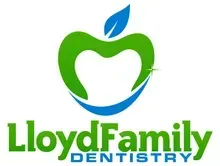
Family Friendly, Pain Free Dentistry!
Located in Riverton, UT
801-446-1166
Dental Crowns and Bridges
Pain-Free Dentistry | Same Day Appointments Available | FREE Wi-Fi Available
Avoid the Embarrassment of Displaying Broken Teeth
Say you broke a tooth while playing sports, or after a nasty fall down some stairs. It can be a very embarrassing ordeal to talk and smile when you have a missing or broken tooth.
Schedule an appointment with the expert at Lloyd Family Dentistry today. Our dentist will assess the damage and fix you up with a crown or a bridge. We work with most insurance companies to take some of the stress off you.
Call us now to schedule an appointment with our dental expert at our clinic.
"I have been coming here for 6+ years and now my daughter goes here too. We love it!"
Jen Coy
What Is a Dental Crown?
A crown covers a tooth to restore it to its normal shape and size, while also strengthening and improving its appearance. A crown may be recommended to cover and support a tooth with a large filling. It can be used to attach a bridge, protect a weak tooth from breaking, or restore one that is already broken. It can be made from all metal materials, all porcelain (white) materials or a combination of both for strength.
Crowns are often referred to as “caps.” They are an artificial replacement for that part of the tooth that is above the gum line. Even if your insurance only covers a portion of the fee, a crown may be the best way to restore your damaged tooth.
What Are Bridges?
A bridge is a dental appliance that replaces one or more natural missing teeth, thereby “bridging” the space between two teeth. Fixed bridges are cemented onto the teeth on either side of the space. Unlike removable partial dentures, fixed bridges cannot be removed from the mouth by the patient. If you are missing any teeth and are committed to maintaining good oral hygiene practices, you may be a good candidate for a bridge. If left unfilled, this space can cause the surrounding teeth to drift out of position as well as cause teeth and gums to become more susceptible to tooth decay and gum disease, which can cause further tooth loss.
Fixed bridges not only correct an altered bite and improve your chewing ability and speech, but also safeguard your appearance by preventing the collapse of your facial features that can cause premature wrinkles and age lines.
Caring For Bridges
With a bridge, it is more important than ever to brush, floss, and see your dentist regularly. If you do not control the buildup of food debris and plaque, your teeth and gums can become infected, requiring further treatment and resulting in a possible loss of the bridge itself. Your dentist may also recommend using floss threaders that help remove bacteria from hard-to-reach spaces between the bridge and adjacent teeth and gums.
If you maintain optimal oral hygiene care, you can expect your fixed bridge to last for as many as 8 - 10 years, or even longer.